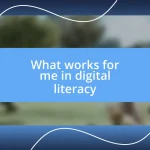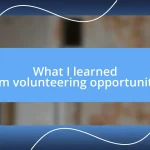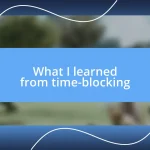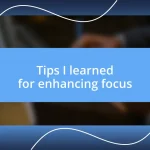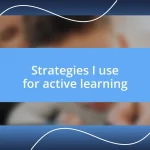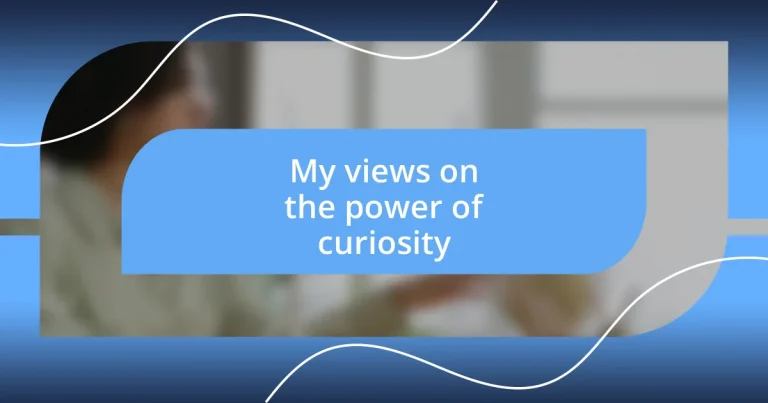Key takeaways:
- Curiosity fosters connection and personal growth, enabling deeper understanding and perspectives through genuine questions and experiences.
- Embracing a curious mindset enhances problem-solving skills, encourages lifelong learning, and strengthens interpersonal relationships.
- Balancing curiosity with focus is essential for productivity; setting boundaries allows for exploration without distraction, leading to more meaningful outcomes.
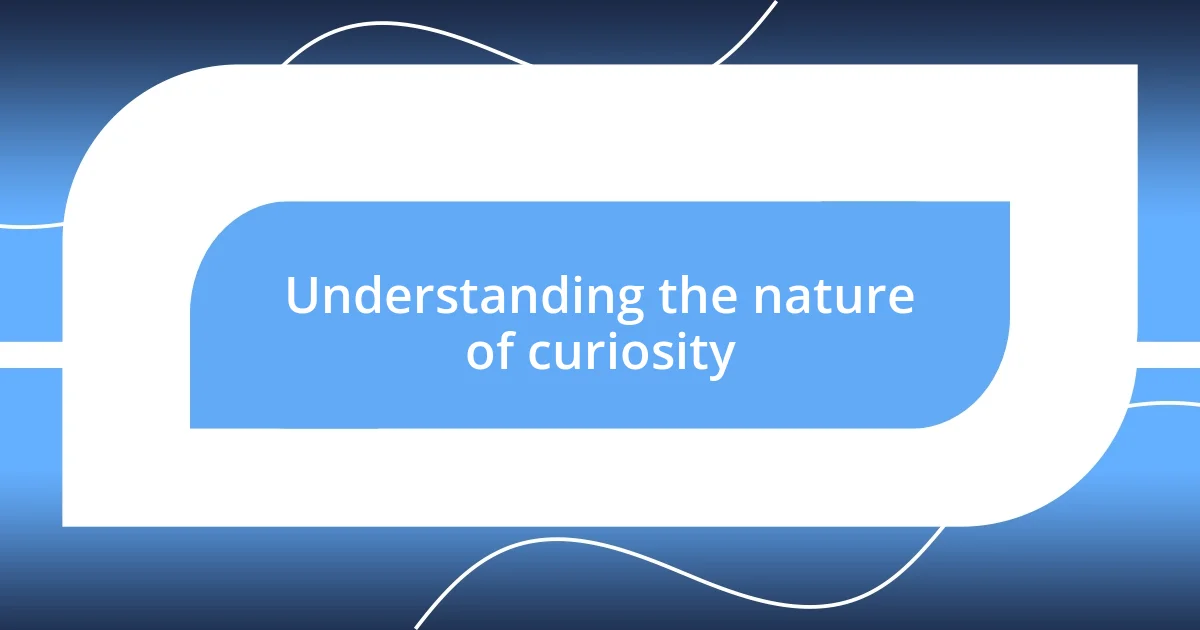
Understanding the nature of curiosity
Curiosity is an innate drive that propels us to seek answers and explore the unknown. I still remember the thrill of flipping through my grandmother’s old photo albums, yearning to discover the stories behind every faded picture. That longing for understanding often ignites a spark within us, compelling us to dig deeper into subjects we might not initially consider.
What many might overlook is that curiosity isn’t just about gathering information; it’s also about fostering connection and empathy. I recall a time when I sat down with a friend from a vastly different background, eager to understand their experiences. The questions I asked—not just any questions, but ones that came from a genuine place—allowed us to share perspectives and bond in ways I never anticipated. Doesn’t it make you wonder how often curiosity can bridge gaps between people?
Moreover, curiosity can be a potent tool for personal growth. I’ve found that when I embrace my inquisitive nature, I open myself up to new ideas and experiences that challenge my preconceptions. For instance, trying out a cooking class taught me about different cultures and food traditions, expanding my worldview. Isn’t that a powerful reminder of how asking “why?” can lead us down paths we never thought to explore?
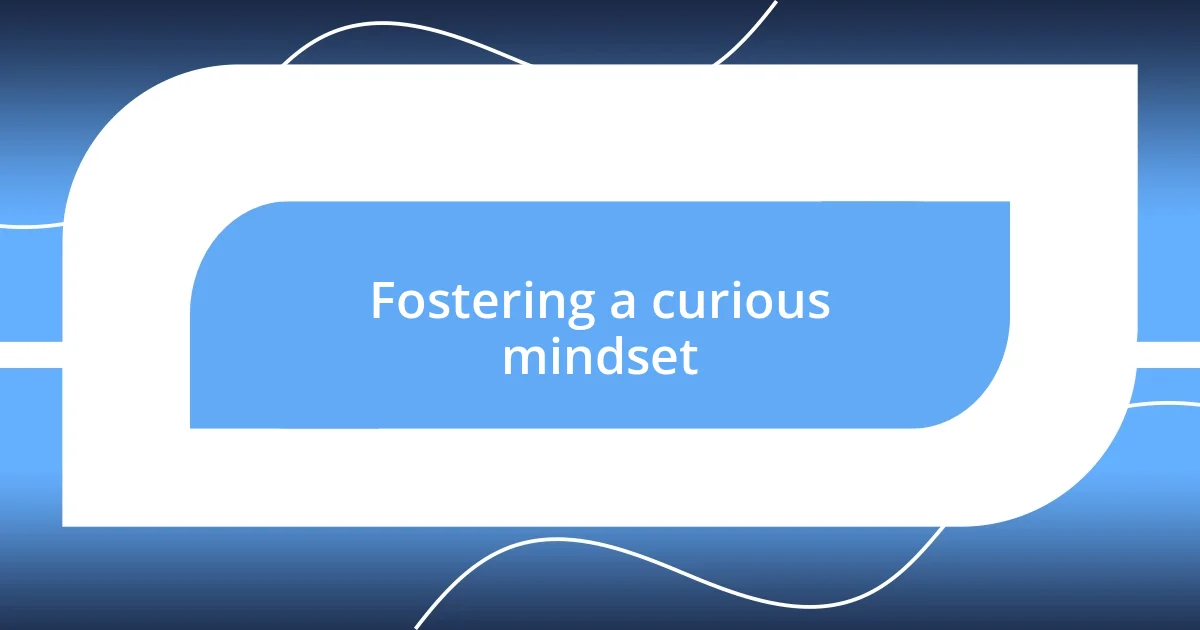
Fostering a curious mindset
Fostering a curious mindset can begin with the simple act of asking questions. I often find myself pondering, “What if?” in various situations, from workplace challenges to personal dilemmas. This habit opens up entire worlds of possibility, transforming mundane moments into opportunities for exploration. Just the other day, I stumbled upon an article about quantum physics. My initial confusion led me to a rabbit hole of videos and explanations that not only clarified the topic but delighted me with its complexities.
Additionally, embracing a curious mindset may require stepping outside of our comfort zones. I remember vividly the first time I attended a seminar on a subject I knew little about. Initially, I felt out of place, but by the end, the discussions ignited a passion in me for learning that I hadn’t anticipated. That experience taught me that sometimes, embracing uncertainty can lead to unexpected joys and insights. Have you ever ventured into unfamiliar territory and found a treasure within?
Lastly, it’s important to nurture curiosity through everyday interactions. I’ve started incorporating curiosity into my daily conversations, making it a point to ask deeper questions rather than skimming the surface. During a casual coffee chat, I asked a colleague about their favorite childhood memories and learned surprising stories about their cultural heritage. This not only strengthened our relationship but also enriched my understanding of their experiences. Curiosity, I’ve realized, can transform our interactions and deepen the connections we forge with others.
| Action | Impact |
|---|---|
| Asking questions | Opens up possibilities |
| Stepping outside comfort zones | Reveals unexpected passions |
| Nurturing curiosity in conversations | Deepens relationships |
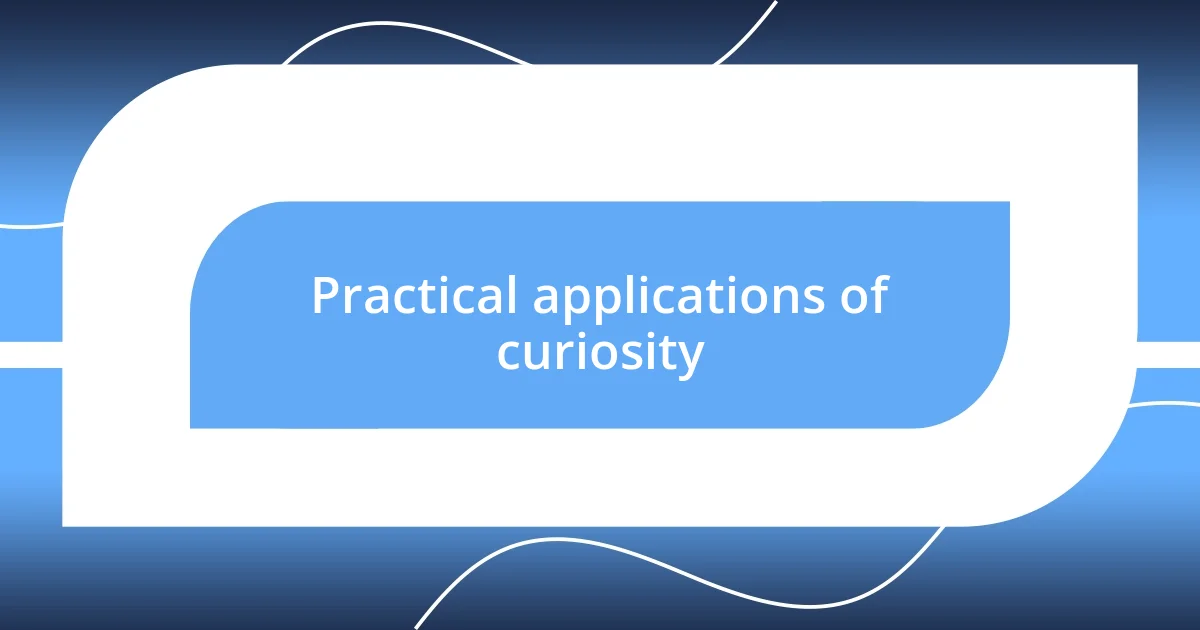
Practical applications of curiosity
Curiosity’s practical applications extend into various aspects of our lives, often leading us to unexpected discoveries. I’ve found that tapping into my curiosity during everyday situations can enhance both my professional and personal journey. For example, when a coworker presented a project idea I initially doubted, I took a moment to ask questions about their reasoning. This not only clarified their perspective but also led me to reconsider my stance, ultimately culminating in a stronger, more collaborative approach.
Here are some practical applications of curiosity:
- Enhancing Problem-Solving Skills: Diving deeper into complex problems can lead to innovative solutions.
- Encouraging Lifelong Learning: Exploring diverse subjects enriches our knowledge, making us more adaptable in an ever-changing world.
- Strengthening Interpersonal Connections: Asking thoughtful questions can foster deeper understanding and rapport with others.
Curiosity can also inspire creativity in our daily lives. I remember an art class where I hesitated to express my ideas, feeling intimidated by the skills of others. But when I dared to inquire how they approached their projects, I uncovered techniques that sparked my imagination. Their willingness to share not only fueled my creativity but also nurtured a sense of community among us. It’s fascinating how curiosity can transform a solitary endeavor into a collaborative exploration.
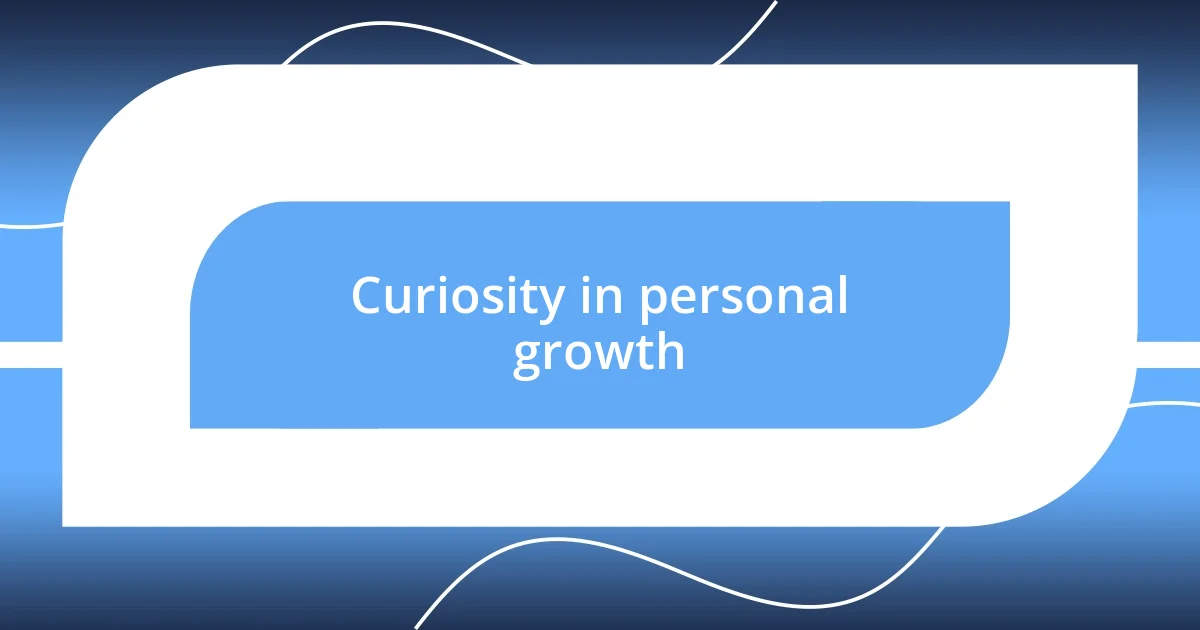
Curiosity in personal growth
Curiosity plays a pivotal role in personal growth. I often reflect on how the simple act of being inquisitive has propelled my own journey. For instance, when I began learning a new language, the initial excitement quickly turned into frustration. But instead of giving up, I started asking different questions about the culture behind the language. This shift in perspective not only reignited my enthusiasm but also enriched my understanding, making the process feel like an adventure instead of a chore.
One vivid memory I have is my experience at a cooking class. I was surrounded by seasoned home chefs, feeling a bit out of my depth. But instead of shying away, I started asking the instructors about their favorite dishes and culinary secrets. Not only did I walk away with amazing recipes, but I realized that tapping into others’ expertise can illuminate paths I never knew existed. Isn’t it amazing how one question can lead to a wealth of knowledge?
Lastly, embracing curiosity has encouraged me to view failure through a different lens. Rather than fearing mistakes, I started to see them as opportunities to learn. I remember when I failed to deliver a presentation as I had hoped. Instead of dwelling on the embarrassment, I reached out to colleagues for feedback. Their insights transformed my approach, turning what could have been a setback into a stepping stone for growth. Have you ever turned a mistake into a moment of learning? It’s a powerful reminder that curiosity can turn our missteps into meaningful experiences.
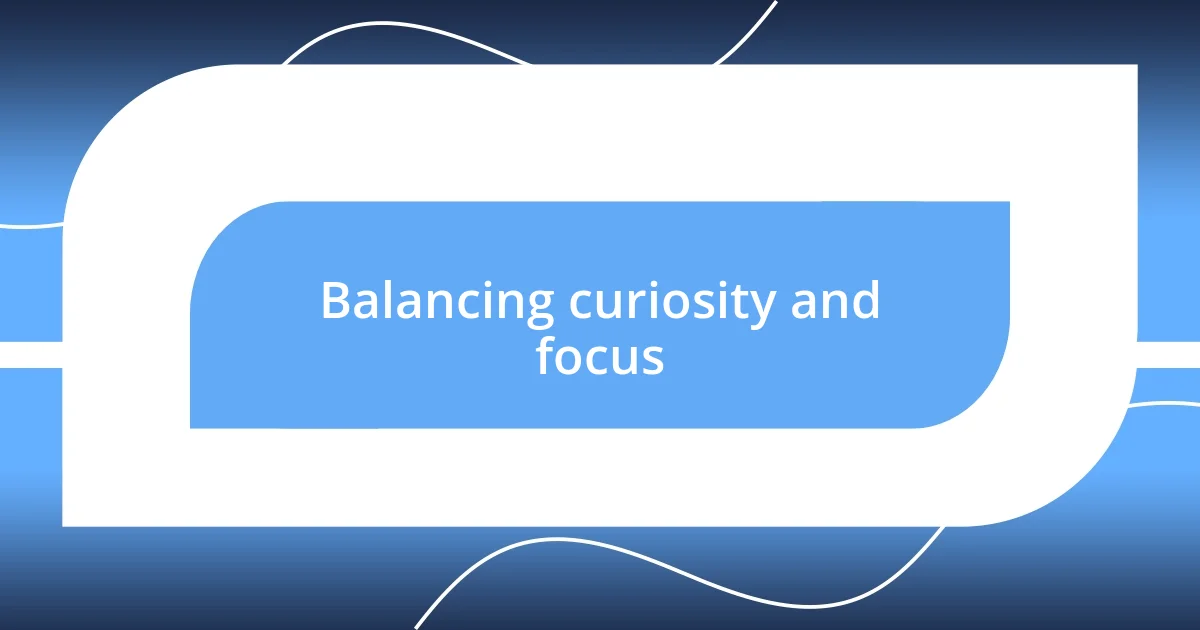
Balancing curiosity and focus
Curiosity and focus often find themselves at odds, creating a delicate balance we must navigate. I remember a time when I embarked on a new project at work, filled with enthusiasm and a desire to explore every angle. As I dived deeper into research, I found my attention splintering into countless directions, which diluted my productivity. There’s something to be said about honing in on one path while still allowing space for exploration; I realized that curating my curiosity led to more meaningful outcomes.
It’s easy to get swept away by our inquisitive nature, but I’ve learned that setting boundaries can enhance our focus. When I started using productivity techniques, like time-blocking, I noticed how dedicating specific intervals to my curiosity helped me remain anchored. During these focused bursts, I allowed myself to fully explore a topic without the fear of losing track. This approach not only increased my efficiency but also made my moments of curiosity feel more rewarding.
Have you ever noticed how curiosity can sometimes lead to distraction? I recall being in a meeting where my mind wandered to new ideas sparked by a discussion topic. It was a challenge to rein myself back into the conversation, but it taught me the importance of balance. I now strive to bring an element of curiosity to structured settings by jotting down ideas to explore later. This way, I’m not losing focus, but I’m also honoring that innate spark of curiosity without letting it derail my attention. Isn’t it refreshing to think we can harness both curiosity and focus to drive our growth?


